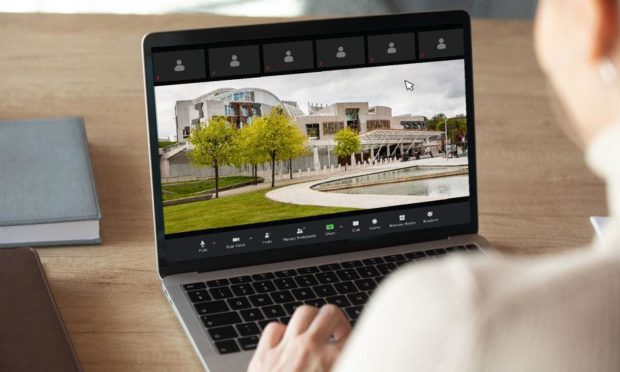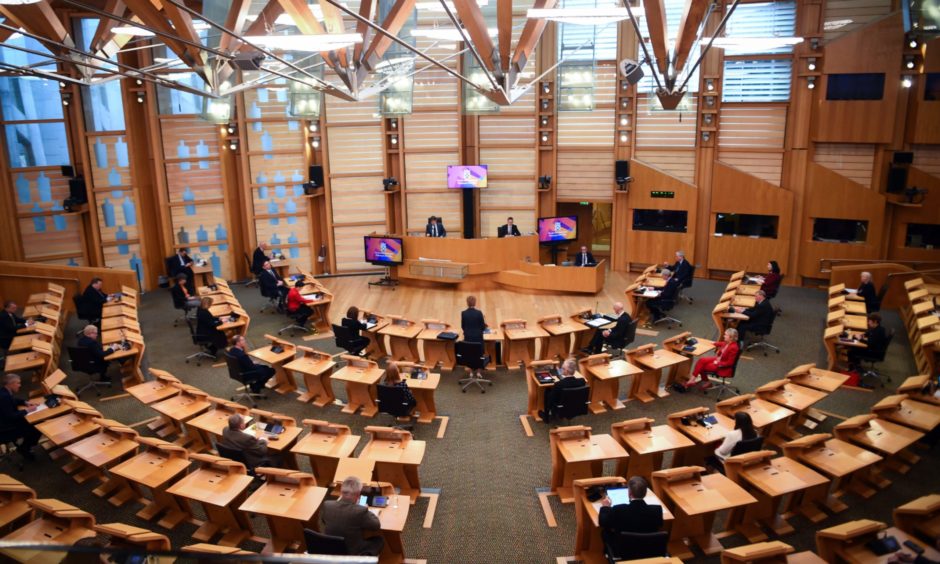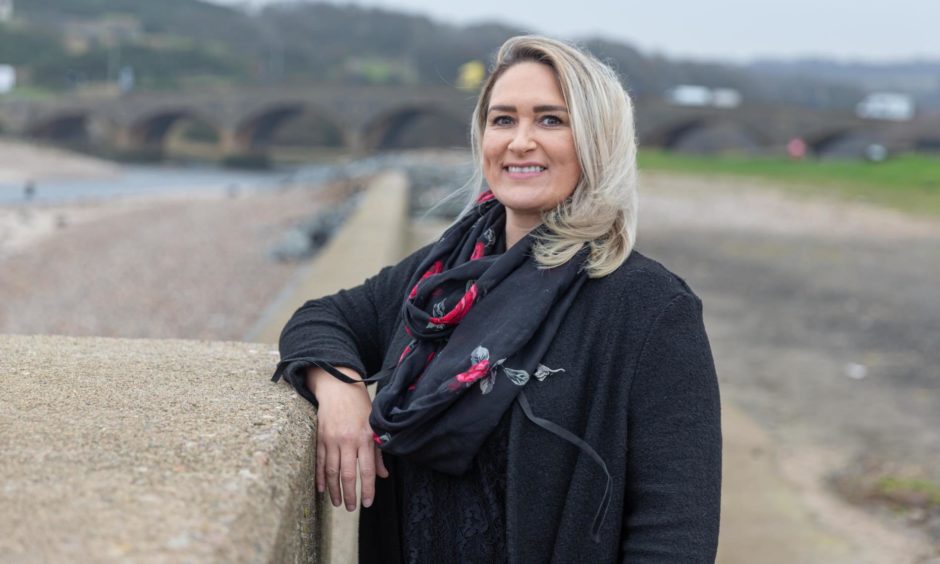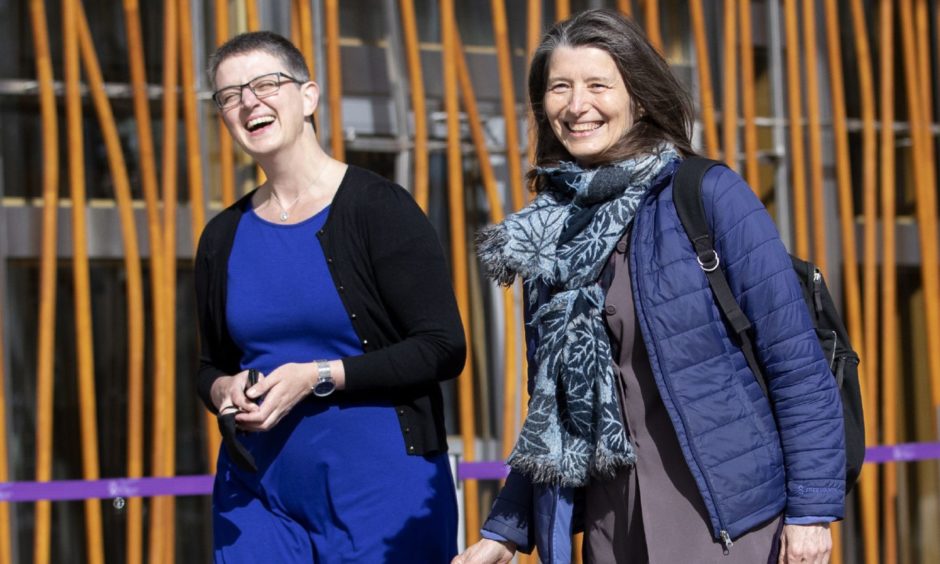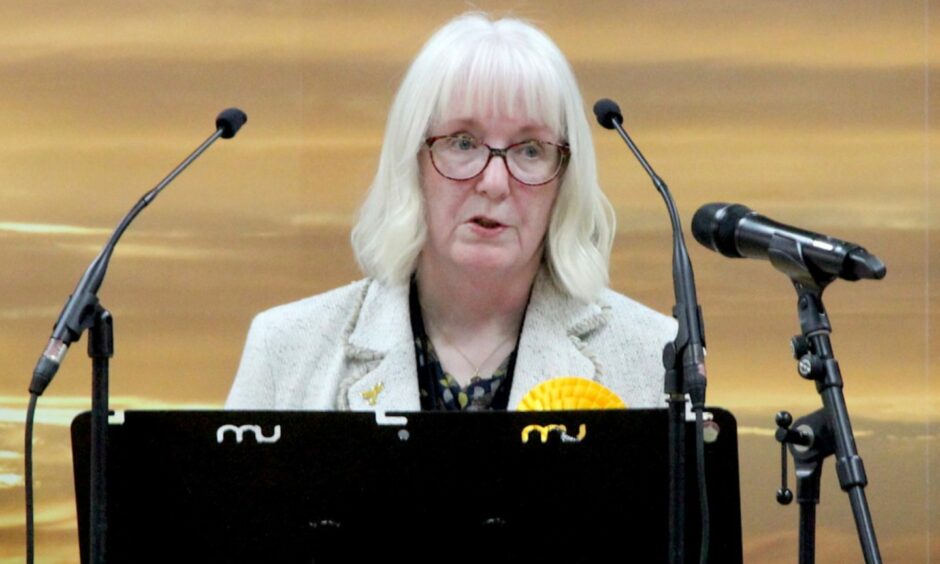When hiring new office staff, Banffshire and Buchan Coast MSP Karen Adam was keen to ensure some of the positions involved flexible working.
As a result, a “huge majority” of the applicants who came forward mentioned they had been attracted by the flexibility offered as it could “work around their lives better”.
The Covid-19 pandemic saw makeshift workspaces spring up in kitchens, spare bedrooms, and living spaces across the country, as working from home became the new normal.
Now, with a shift towards normality and the potential return to the office for many, the Scottish Parliament is also considering how MSPs will work in the years to come.
And at Westminster SNP MPs are calling for the UK Parliament to extend remote proceedings beyond the summer recess, to ensure constituents are not disenfranchised if members are unable to travel to London.
Hybrid working
Holyrood’s Presiding Officer Alison Johnstone made clear on her first day in office that “hybrid working” will have a role to play in a post-pandemic context.
She is speaking to party leaders and other members over the “coming weeks” to discuss which elements of the remote working arrangements should be retained.
A Scottish Parliament spokesman said Ms Johnston sees “clear benefits from family-friendly working” – including for those with young children, elderly parents and other caring responsibilities.
He added: “This is partly about flexible working for all, but it is also about breaking down barriers for women who continue to carry most of the burden of caring roles.”
Prior to the coronavirus pandemic, the issue fell under the spotlight when three former MSPs – Gail Ross, Jenny Marra and Aileen Campbell – made the decision to stand down to spend more time with their young families.
The Scottish Parliament had previously rebuffed requests to consider remote and proxy-voting in a bid to accomodate those who live in rural constituencies and were juggling family life with their role as MSPs.
However, the experience of Covid-19 has forced the parliament to assess what aspects of remote working could be retained in a bid to benefit MSPs in their working life.
‘Opening up talent pool’
SNP MSP Karen Adam said that offering flexible working options when recruiting for staff meant she “opened up the pool of people available”.
“There could be people with caring responsibilities or even neuro-diverse people who work better at different hours in the day or who like to be at home and are more introverted”, she said.
“I couldn’t believe the amount of applications I had for the hybrid and flexi-work well over and above the in office hours.
“It’s opening up that talent pool.”
The mum-of-six said she is in a privileged position in that she does have childcare when she works in parliament.
But she thinks it is “crucial” to make parliament work so that a wider variety of people get involved in politics – including women and disabled people.
Ms Adam added: “I don’t think it should all be hybrid and all remote working because I think it’s still important that people meet up and connect human to human, eyeball to eyeball.
“But there’s definitely a place to have a mix.”
‘Inflexibility and long hours’
There appears to be cross-party agreement that while it would not be appropriate for all the work of parliament to be remote, more flexibility would have benefits.
Scottish Greens equalities spokesperson and North East MSP Maggie Chapman said politics should be “as inclusive as possible”.
She added that despite the “best intentions” when the parliament was established, it is “still a system which can deter women, disabled people and others because of its inflexibility and long hours away from home”.
Ms Chapman said:”The pandemic has shown that much of an MSP’s work can be done remotely, and I think there is a recognition across all parties that this should feed into a new normal which further enhances the prospect of a more representative, inclusive parliament.
“It is also important to acknowledge that enhancing digital connectivity will make it much easier for many members of the public to engage directly with the work of the parliament.
“We must build into our parliament improved ways for our citizens to have their voices heard. This will be good for democracy, and will improve the quality of decisions we parliamentarians will make.”
‘More accessible to people with families’
North-east Conservative MSP Liam Kerr shares the belief that parliament would benefit from keeping “elements” of the hybrid approach.
He said: “If there’s any way to make Holyrood more accessible to people with families, that should be looked at.
“The question has been around for some time, it’s just been underlined by the pandemic.
“Although there are situations where there’s no substitute for physical presence – in debates, for example.”
‘Exceptional circumstances’
Shetland MSP Beatrice Wishart said:”Remote working has been a significant change to how parliamentary business is conducted and while there are obviously times when there is no substitute for conducting business face-to-face, I would like to see this option remain available for MSPs who are dealing with exceptional circumstances.
“For those experiencing ill health, with caring responsibilities or difficult travel logistics, remote working could enable them to carry on representing their constituents to the best of their abilities.
“The Presiding Officer is right to consider how we can make parliament work better.”
‘Degree of balance’
The Scottish Parliament spokesman said the presiding officer is keen to have “flexibility so that members don’t have to spend quite so many nights away from their constituencies and families”.
He added: “She has said publicly it isn’t always the best use of someone’s time to bring them hundreds of miles to Edinburgh just to vote when they could potentially use that time to better represent their constituents.
“The Presiding Officer is of the view there needs to be a degree of balance in the solution so that parliament doesn’t become a forum for the central belt only – but flexible family-friendly working must be achievable.
“She is looking forward to discussing this further with colleagues across parties.”
